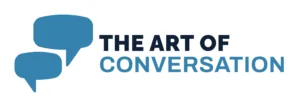 Technology has transformed various aspects of our lives, including how we approach mental health and wellness. With the rise of smartphones and mobile applications, accessing mental health resources has become more convenient than ever. Through a few taps on a screen, individuals can find supportive tools that align with their needs.
Technology has transformed various aspects of our lives, including how we approach mental health and wellness. With the rise of smartphones and mobile applications, accessing mental health resources has become more convenient than ever. Through a few taps on a screen, individuals can find supportive tools that align with their needs.
One of the key ways technology enhances mental health is through accessibility. For many millennials, the stigma surrounding mental health care can be daunting. Virtual platforms provide an alternative to traditional therapy, allowing users to engage with mental health professionals from the comfort of their homes. This anonymity can encourage those who might hesitate to seek help in a face-to-face setting.
Apps play a significant role in this shift, offering features like guided meditation, mood tracking, and cognitive behavioral therapy techniques. For instance, apps such as Headspace and Calm provide users with a variety of meditation exercises and mindfulness practices tailored to reduce anxiety and improve focus. These tools not only promote immediate relaxation, but they also foster long-term wellness habits.
Another key aspect is the integration of community support through technology. Online forums and groups within these apps create a sense of belonging, enabling users to share experiences and coping strategies. By connecting with others facing similar challenges, millennials can find reassurance and understanding, which are vital for emotional resilience.
Additionally, wearables and health tech devices contribute by monitoring physiological indicators related to mental health. Devices that track sleep patterns, heart rate variability, and even physical activity levels can provide insights into one’s mental state. This data can be invaluable for individuals and mental health professionals alike, paving the way for more personalized care.
This marriage of technology and mental health not only addresses immediate needs but also empowers users to take control of their wellness journey. By bridging gaps in access and providing a variety of resources, these tools are an essential part of modern mental health care, aligning perfectly with the lifestyles of today’s millennials.
Popular Mental Health Apps Among Millennials

Among the plethora of mental health apps accessible today, some stand out for their innovative approaches and user-centric designs. One popular option is BetterHelp, which connects users with licensed therapists via text, video, or audio messaging. This flexibility accommodates varying preferences and schedules, making therapy more accessible for those with demanding lives. Whether users need a weekly check-in or immediate guidance during a crisis, BetterHelp adapts to fit their needs.
Another noteworthy app is Talkspace, which offers similar features but enhances the experience with specialized therapists for diverse issues, such as anxiety, depression, or even relationship struggles. The choice to engage in therapy through messaging or live sessions allows users to select what feels most comfortable, breaking down barriers often associated with traditional therapy.
Millennials are also gravitating toward apps that incorporate wellness practices alongside mental health support. Calm, for instance, combines sleep stories, meditation, and breathing exercises to foster overall well-being. Users can explore guided sessions based on their current emotional state, whether they seek calm amidst chaos or motivation to tackle the day. Its seamless blend of relaxation techniques makes it a favorite.
Then there’s 7 Cups, an app that offers a unique platform for peer support. By connecting users with trained listeners, it creates an accessible environment for sharing feelings without the pressures of a formal counseling session. This feature resonates well with millennials who might feel overwhelmed by intense therapy but still want to share and process their emotions in a safe space.
For those interested in a more interactive experience, Moodfit serves as a comprehensive mental health toolbox. It includes features for mood tracking, journaling, and goal setting, allowing users to actively engage in their wellness journey. By keeping tabs on emotional fluctuations and identifying triggers, users can take informed steps towards better mental health, making growth feel tangible.
These apps are not merely digital tools but companions on the journey to improved mental wellness. As they cater to the unique needs of millennials, they empower users to cultivate healthy habits, seek help when necessary, and foster community support, all within the palm of their hands.
